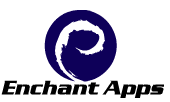Although past performance is no guarantee of future success, taking stock of what’s happening in your
business is an invaluable way to assess progress. Customers using Oracle Fusion Cloud ERP, HCM, SCM,
or CX can gain an advantage using Oracle Fusion Analytics apps. Built on Fusion Data Intelligence (FDI),
the platform powering the next generation of Oracle Fusion Analytics applications, these tools are
designed to help you use data to make better decisions.
Oracle Fusion Analytics primer
Delivered Oracle Fusion Analytics applications in four functional areas: ERP, HCM, SCM, and CX. They
share an emphasis on:
Prebuilt data integrations from diverse sources including Fusion Apps and non-Oracle
applications and services
Ready-to-use analytics based on the specific business requirements of each domain
AI-powered features that provide actionable information to decision-makers
Easy access, meaning you don’t have to be an analyst or data scientist to use them

We are now enhancing FDI and all Oracle Fusion Analytics applications with new capabilities that will
deliver additional benefits across ERP, HCM, SCM, and CX.
ERP: Oracle Accounting Hub Analytics
Let’s level set by defining the role of two important financial management applications. First, Oracle
Accounting Hub helps companies with disparate ERP systems automate consistent, standardized
accounting using an enterprise-wide chart of accounts. Second, Fusion ERP Analytics helps finance,
procurement, and project professionals uncover opportunities to improve profitability, working capital,
and expenditures. Now, we’re adding automated integration between the two applications: Accounting
Hub Analytics will provide finance teams prebuilt KPIs that offer comprehensive views across all their
accounting data.
HCM: HR Helpdesk insights and benchmarking
Oracle HR Helpdesk, part of Oracle Fusion Cloud HCM, is a service request and case management
solution that helps deliver quick, consistent, and intelligent HR services to every employee. Fusion HCM
Analytics will add support for HR Helpdesk data, offering new KPIs and prebuilt dashboards to help
stakeholders better understand employee needs.
For people leaders, new peer-to-peer benchmarking in Fusion HCM Analytics will enable comparative
analysis of team member performance. Peer groups will be configurable and data will show employee
engagement scores, service-ticket quota attainment, service tickets closed, revenue, profit, and other
key metrics.
SCM: manufacturing analytics
Consolidating supply chain and manufacturing data in one place helps organizations see the changes
needed to streamline production, increase productivity, and satisfy customers. Fusion SCM Analytics will
expand support for manufacturing analytics capabilities, which provide customers with timely insights
into work-order performance, shop-floor efficiency, and plan-to-production processes. Planning-
analytics capabilities will also increase visibility into supply and demand data, allowing teams to better
optimize supply chains to meet customer demand.
CX: native support for Salesforce data
Connecting data from across the enterprise—plus external sources—in one unified model creates new
levels of transparency and utility. Fusion CX Analytics will add native support for Salesforce data,
enabling customers to reduce friction, get more value from analytics, and assess business performance
across multiple applications.
Summing up
High performing companies make it a standard practice to use analytics in decision-making. That’s why
Oracle Fusion Analytics delivers a combination of domain expertise, technical innovation, and data
(notably data generated by Fusion Apps) to give ERP, HCM, SCM, and CX customers a ready-made
analytics advantage. It helps you ask better questions about your business—and get better answers.
